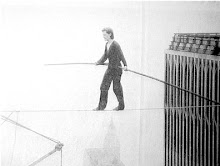I have always loved the versatility of English - how we can have numerous words that mean the same but that have different uses depending on your audience, the intent of your message and the tone you want to project. New words seem to be invented every day, and every culture that comes into contact with English enriches the language by providing speakers with additional words like manga, algebra and pajama.
But at the heart of English is the constant tension between Latin and Anglo-Saxon, dating back to the Norman invasion of 1066. The Norman King William and his descendants spoke French, which is rooted in Latin, while the commoners continued to speak Old English, which developed from the language of the Germanic tribes, particularly the Angles and the Saxons.
Now I'm neither an historian nor a linguist, but I do know a little about the impact of various words. Consciously or not, we tend to use Latin and Anglo-Saxon words in different ways and for different purposes, and these word choices go back to the fact that after 1066 the aristocrats spoke French while the plebes spoke Old (and later Middle) English.
To this day, when people want to sound intelligent or cultured they're likely to choose the Latin-rooted words over the Anglo-Saxon ones. They won't give you a drink, but they will offer a beverage; they may not believe in luck, but they realize that certain people are more fortunate than other folks.
I use a lot of Latin-based words myself, when it makes sense to do so; good writers will use every tool available to get their point across. I try, however, to resist the urge to use certain words just to impress someone with my vocabulary. Sometimes the Latin word is the best one for the circumstance.
When you want to get something done, though, you really need to pull out the Anglo-Saxon words. They're the action words. When you're drowning, you don't request assistance, you yell, "HELP!" It's automatic. It's instinctive.
Many writers forget their natural instincts and go for the ten-dollar words. Some even have conversations with themselves along the following lines:
"Hmmm, what's another way to say 'I'm happy to be here.'?"
"I know, how about 'it is a pleasure to be here.'?"
"Yeah, that's better. I'll use that!"
We're terrible that way, and this tendency to show off does us no favors. I don't know how many English words there are right now. I know it's a lot. Apparently Shakespeare alone added about 300,000 words to the language. Many of them are no longer in common use, and have limited value for that reason. But we still have a very large palette with which to paint our word-pictures. We should never shortchange ourselves by avoiding the shorter, simpler words. In fact, we should embrace them. They're the workhorses, the ones we call on when we need to get something done.
They deserve our respect.
Tuesday, June 1, 2010
Subscribe to:
Posts (Atom)
